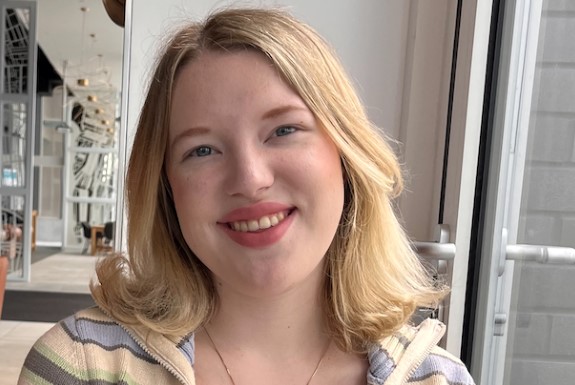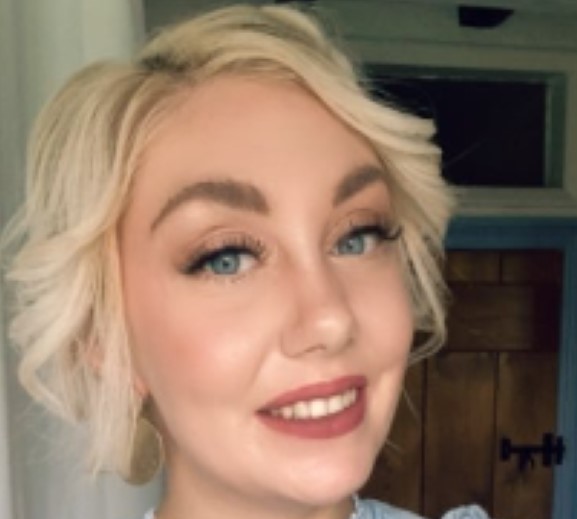Summer internship: Researching the impact of nature exposure on dietary behaviour

This summer Andrea Nally, a second year BSc Psychology student, has spent time on a research internship under the supervision of Katie Clarke, a Doctoral Academic Teacher and PhD student in the Department of Psychology.
Andrea and Katie worked together earlier this academic year on a research study investigating the impact of nature exposure on dietary behaviour. They are currently recruiting more people for an expanded version of the project as part of a summer internship.
Here, Andrea and Katie discuss the summer internship, conducting the research project at the Department of Psychology and the benefits of taking part in the internship.
What does a typical day during the summer internship involve?
Andrea: Every day can be a bit different. When I began, I got familiar with the paperwork and Katie showed me how to input data from questionnaires - how to work your way around questionnaires and create them.
Then one day I had training in the labs, so I was told about food health and safety and hygiene, so that’s completely different from sitting at a computer and looking at data.
Every day is kind of a new experience and so far it has been really fun and very interesting.
What are the benefits for students and staff who take part?
Andrea: The main benefit is learning about research. I studied Psychology at A-Level and I’m doing it now as a course, but you constantly learn about research, what researchers have achieved and how research is done. To put it into practice is great.
Katie: I’m in the Appetite Research group, so it’s really lab based - getting to use a lab and being taught all of the procedures in the lab.
Benefits wise, it looks really good on a CV. I’m a massive advocate for the scheme as I did one in my second year. From that I was offered a bigger research position when I finished, and my PhD from that. My entire career so far is in the area I’m in, because my Academic Advisor asked me to do this scheme for them when I was in my second year. I’m definitely a big advocate for the scheme.

Katie Clarke is a Doctoral Academic Teacher and PhD student in the Department of Psychology
What makes the University of Liverpool a great place to study a summer internship?
Katie: The whole way through my career, everyone has been really, really supportive, which is why I’ve stayed. The opportunities - I think that’s the main one - from the more senior academic staff right down to the students. In our group, we all spend time together. There’s nice support.
Andrea: I agree. I think so far, I’ve only interacted with professors. Coming into the internship and spending time with Katie, you realise how everyone is involved and everyone is really supportive. It’s really good, a nice atmosphere.
Katie: Also, we do have equipment and facilities that I don’t think everyone is as aware of. We’re using virtual reality.
Our study is whether exposure to nature influences you to make healthier dietary choices. We’re putting people in VR in nature and in a city.
We’re using the food labs. You don’t always have to do surveys and stuff. There is some quite cool equipment here that you can use. It’s here for a reason and I don’t think many students are as aware that we have that equipment.
What advice would you give to students who want to take part in a summer internship in the future?
Andrea: It’s such a good opportunity. It gives you so much experience. On this course we have a nice long summer, it’s brilliant. It’s something productive and helpful to your course. It furthers you in your career. The research knowledge that you get, you understand your course more.
Some advice that I would give is, don’t be very narrow with your subject. Diet interested me very much, but I remember going into the course, it wasn’t always my focus topic. I was very interested in child psychology – and I still am – but this is such a great opportunity that you don’t want to pass something up because you think, ‘oh I only like this.’
You have to be open, that’s the main thing. It’s a great opportunity, I’ve really enjoyed it.
Katie: Just get involved. There are journal clubs, lab clubs, meetings and opportunities to build relationships with the more senior members of staff. There are opportunities like this, it’s just putting yourself out there.
I have been saying to our group all year that the internship is a really good thing to do, but just reach out and say, ‘I’m interested in doing this, can I work with you?’ The worst thing that they’re going to say is ‘no, but my colleague has another project you can work on.’
Putting yourself out there is how you get these opportunities.